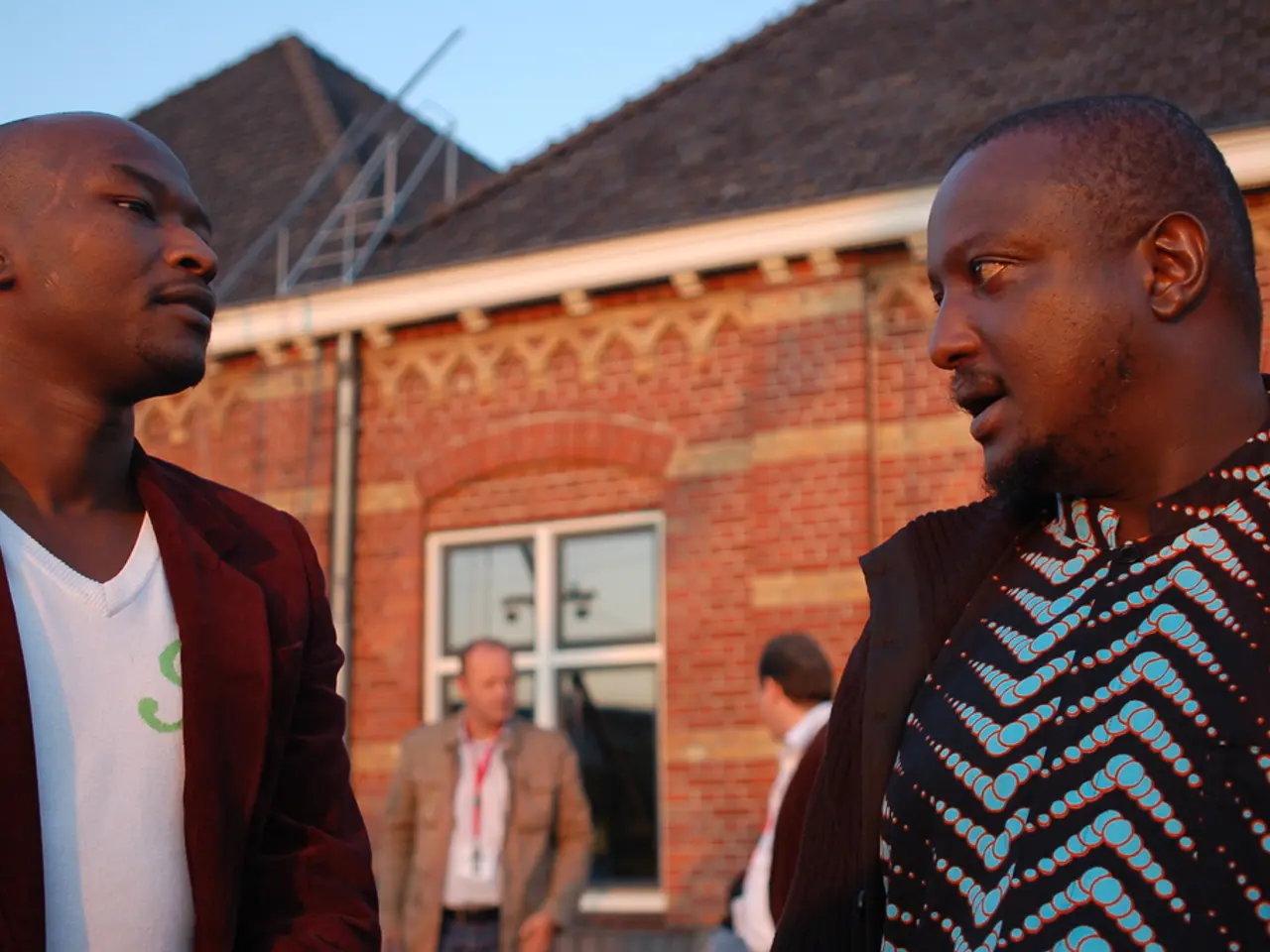Africa's Francophone regions, stretching from Dakar to Abidjan, emerge as Africa's future economic powerhouses: Insights into their economic potential.
In the dynamic landscape of African innovation, Francophone Africa is making a significant mark as a burgeoning growth engine for technology and startups. The region's potential is being driven by a combination of factors that offer stability, opportunity, and a fertile ground for entrepreneurship.
One of the key advantages of Francophone Africa is its stable economic and financial environment. Mostly operating within the CFA zone, the region benefits from a relatively stable currency and more predictable economic conditions, which reduces currency devaluation risks[1][3]. This stability is appealing to investors looking for reliable markets, setting it apart from some Anglophone markets that have higher currency volatility.
A youthful demographic is another factor fueling the region's rapid tech adoption and digital transformation. With a median age under 20, Francophone Africa has a tech-savvy population that drives demand for innovative digital services and platforms, creating a fertile ground for startups to flourish[3].
Venture capital inflows into Francophone Africa have surged, with a reported 70% increase in startup funding in 2023 alone[3]. This spike demonstrates growing investor confidence and interest in the region's emerging tech ecosystem.
Countries like Senegal are becoming digital leaders within Francophone Africa through strategic initiatives such as "Smart Senegal," which promotes digital education, agriculture, and health services. Senegal’s infrastructure developments, including the Diamniadio Digital Technology Park and expansion of fiber optic networks, exemplify this growth[5].
Francophone Africa shares a common language (French) and fairly unified legal systems due to common colonial history, facilitating easier cross-border business operations and cooperation within the region. This legal and linguistic cohesion supports a more integrated and scalable tech ecosystem[3].
While Francophone African tech ecosystems are newer than those in Nigeria or Kenya, they are rapidly gaining maturity. Successful startups like Djamo (an Ivorian fintech) have raised record funding rounds, demonstrating the ability to grow substantial ventures locally. Moreover, these successes inspire further entrepreneurship, creating virtuous cycles of innovation and investment[1].
Localization and regional content are gaining momentum, with platforms like TF1+ and Netflix expanding their presence via partnerships, which is expected to boost digital content creation and consumption in Francophone markets[4].
In Côte d'Ivoire, initiatives like the GENIE project aim to create 35 digital centres in educational institutions and town halls, and the first Ivoire Tech Forum was launched this year. The government is actively supporting and co-funding digital skills training to prepare a pipeline of startup-ready talent[2].
The newsletter titled "TNW: Francophone Africa" is a bi-monthly newsletter focusing on tech innovation, policy, culture, and economy in Francophone Africa, providing valuable insights into the region's tech scene[6]. Global venture capital firms like Launch Africa, Partech, and 500 Global are investing in Senegalese startups, further boosting the region's tech ecosystem[6].
In conclusion, Francophone Africa's potential as a growth engine for technology and startups is driven by several key factors: economic stability, demographic advantages, increasing venture capital interest, infrastructure development, linguistic and legal unity, growing entrepreneurial ecosystems, and media expansion. Together, these factors position Francophone Africa as a rising force in the continent’s technology and startup landscape over the next five years[1][3][5].
[1] TechCabal (2023). Francophone Africa: The underestimated growth engine. Retrieved from https://techcabal.com/2023/02/25/francophone-africa-the-underestimated-growth-engine/ [2] African Business (2023). Côte d'Ivoire: Government supports digital skills training. Retrieved from https://www.africanbusinessmagazine.com/technology/cote-divoire-government-supports-digital-skills-training/ [3] Quartz Africa (2023). Francophone Africa's tech ecosystem is growing fast. Retrieved from https://qz.com/africa/2337681/francophone-africas-tech-ecosystem-is-growing-fast/ [4] Techpoint Africa (2023). Netflix and Canal+ partner to bring more African content to Francophone viewers. Retrieved from https://techpoint.africa/2023/03/18/netflix-canal-partner-francophone-africa/ [5] The Africa Report (2023). Senegal's digital ambitions. Retrieved from https://www.theafricareport.com/19509/senegal-digital-ambitions/ [6] The Next Web (2023). TNW: Francophone Africa. Retrieved from https://thenextweb.com/france/2023/02/01/tnw-francophone-africa/
- The surge in startup funding in Francophone Africa, with a reported 70% increase in 2023, highlights the region's attractive potential for venture capital investments.
- Beyond just funding, general-news sources like "TNW: Francophone Africa" offer insights into the region's tech scene, revealing the growing interest of global venture capital firms in Senegalese startups.
- Innovation in the field of payments is being driven by fintech startups such as Djamo in Cote d'Ivoire, which have raised significant rounds of funding, demonstrating the region's maturing tech ecosystem.
- In addition to venture capital inflows and startup success, Francophone Africa's digital transformation is fueled by a tech-savvy population and the rapid adoption of digital services, making it an appealing market for technology-focused startups.
- To further support the region's tech ecosystem, initiatives like the GENIE project in Cote d'Ivoire aim to develop digital centers and offer digital skills training, fostering a pipeline of startup-ready talent.
- As Francophone Africa continues to grow as a tech hub, sports platforms may also recognize the opportunity for expansion, potentially partnering with local entities to promote digital content consumption and creation in the region.






